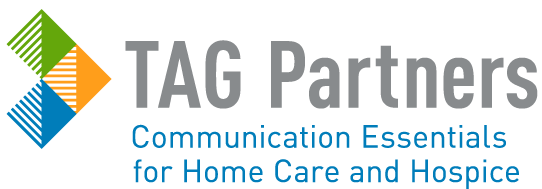November is National Family Caregivers Month. Make a commitment to honor the loving people who dedicate countless hours and resources caring for a chronically or terminally ill relative.
It’s not unheard of for a family member to care for an invalid loved one at home, but these days family caregivers are being asked to shoulder immense responsibilities while balancing work and home obligations. These caregivers are often unprepared to manage the complex nursing required for someone suffering with a serious chronic condition. The physical and emotional demands of long-term caregiving can lead to anxiety, depression, compromised health, and financial hardship. .
Home Health, Private Duty, and Hospice provide services that can assist family caregivers. Many of these services are eligible for Medicare and private insurance coverage with physician referral. Be sure your marketing resources inform families about the in-home services available to help with: skilled nursing, symptom management, pain management, nutritional support, wound care, diabetic care, IV therapy, respite care, companionship and homemaking services.
Here are some promotional ideas:
Call on Human Resource agencies in your service area about promoting your care services on their employee portals. Explain how your agency can help caregivers achieve better work-home balance. Ask them to link to your website for detailed information and a one-on-one assessment.
Sponsor a family caregiver event in your community. Discuss long-term planning, care options, and home care services. Invite financial planners, lawyers, social workers, and the full spectrum of home health and private duty providers to speak.
Family caregivers usually accompany their loved ones to doctor visits so be sure to provide your referring physicians with information about your respite care services.
Add a link to the Caregiver Action Network’s Family Caregiver Story Project on your website to show your commitment to helping caregivers find the resources they need. Visitors can read about the experiences of other family caregivers and find condition specific information to help them in their care giving role.
Visit the TAG Web Store for all your Home Health, Private Duty, and Hospice marketing materials.


